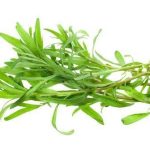 An organic chemical (a benzopyrone) that smells of freshly cut grass.
An organic chemical (a benzopyrone) that smells of freshly cut grass.
A chroman derivative, occurring in many flavoring agents, such as cassie, woodruff, lavender, and lovage. These flavoring agents are extensively used in sweets, liqueurs, and certain wines. Coumarin is a minor constituent of certain edible fruits, for example, strawberries, cherries, apricots, and a major constituent of tonka beans. Trace quantities of coumarin are also found in citrus oils and carrotseed oil. Coumarin has moderate acute toxicity in animals including man. About 5 g is fatal to sheep; about 4 g produces mild toxic effects in humans; and about 40 g is lethal to horses. Coumarin, which can also be made synthetically, is still allowed for food use in Europe. It is prohibited in the United States as it has been found to cause liver damage in rats.
A drug that is useful as an anticoagulant in patients with heart disease.
Anticoagulant drug used to prevent and treat a thrombus or embolus.
